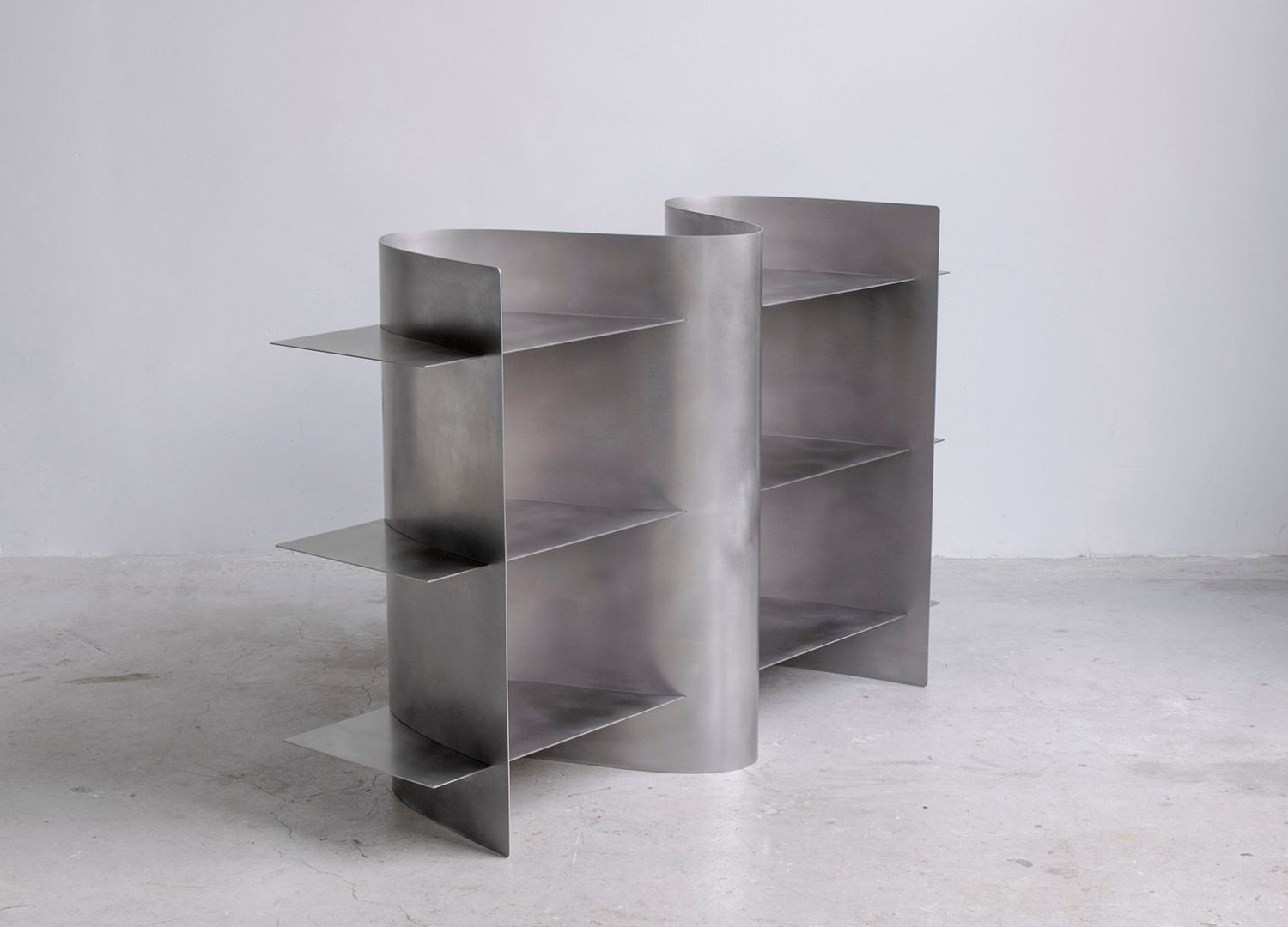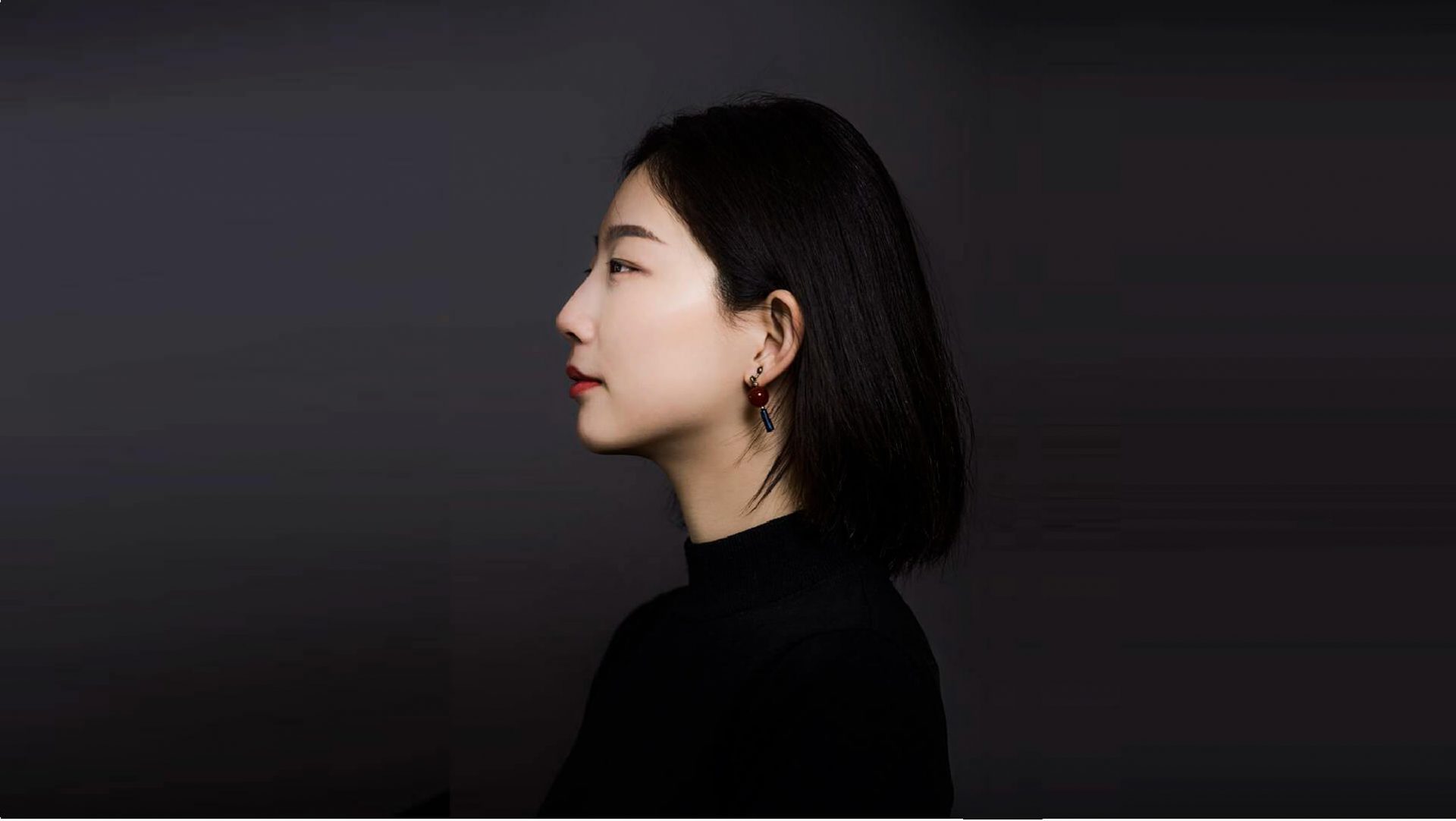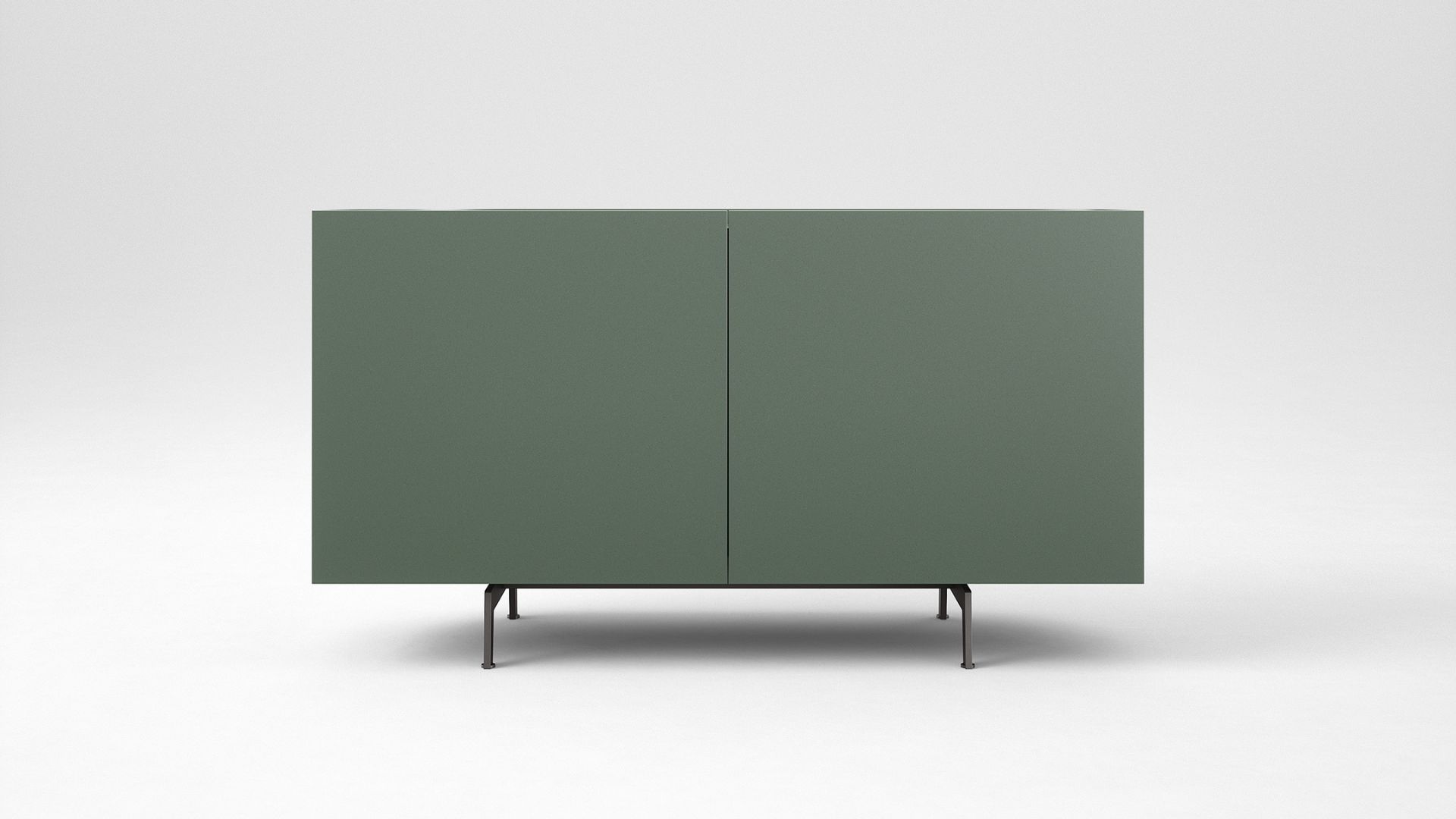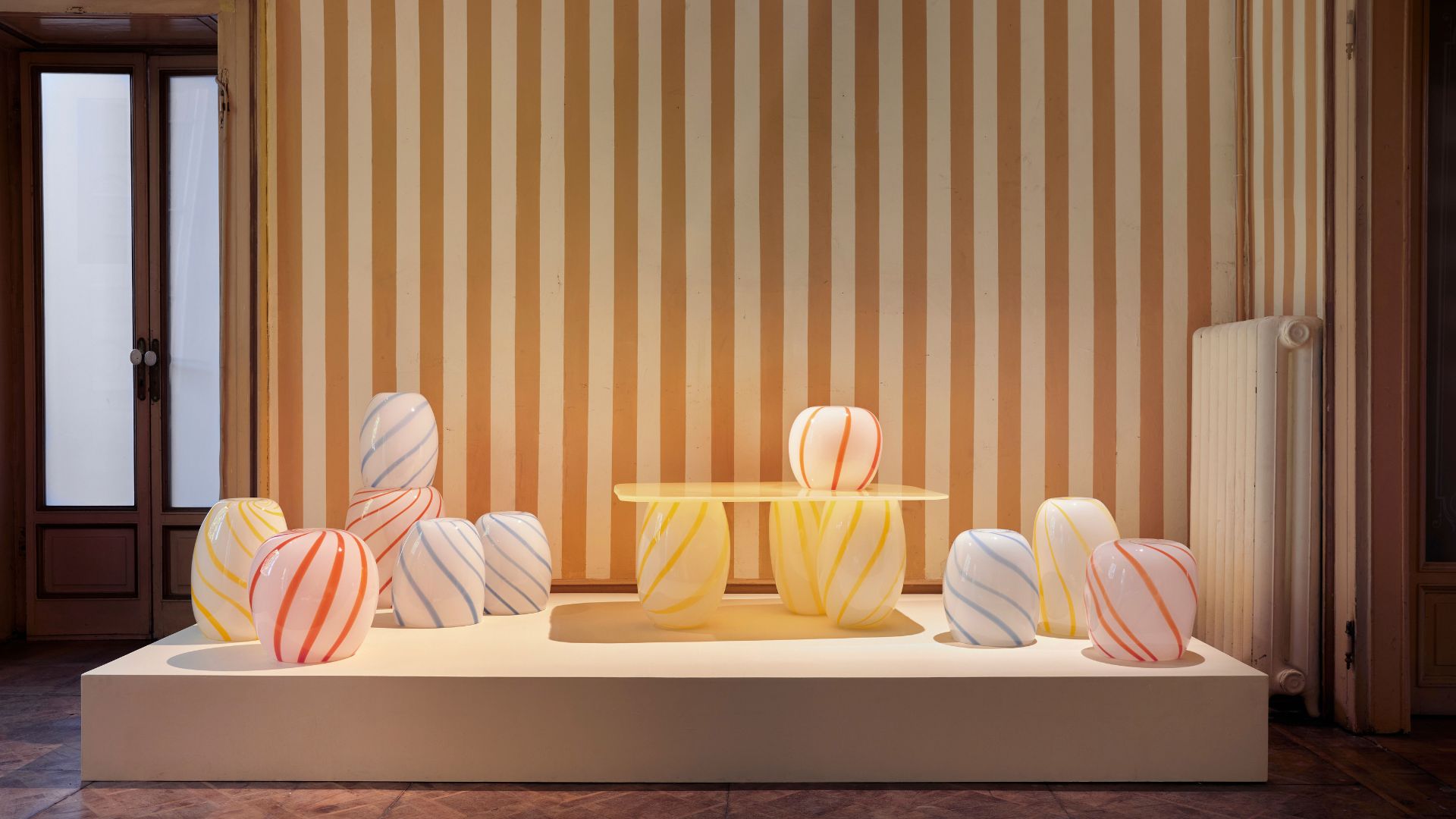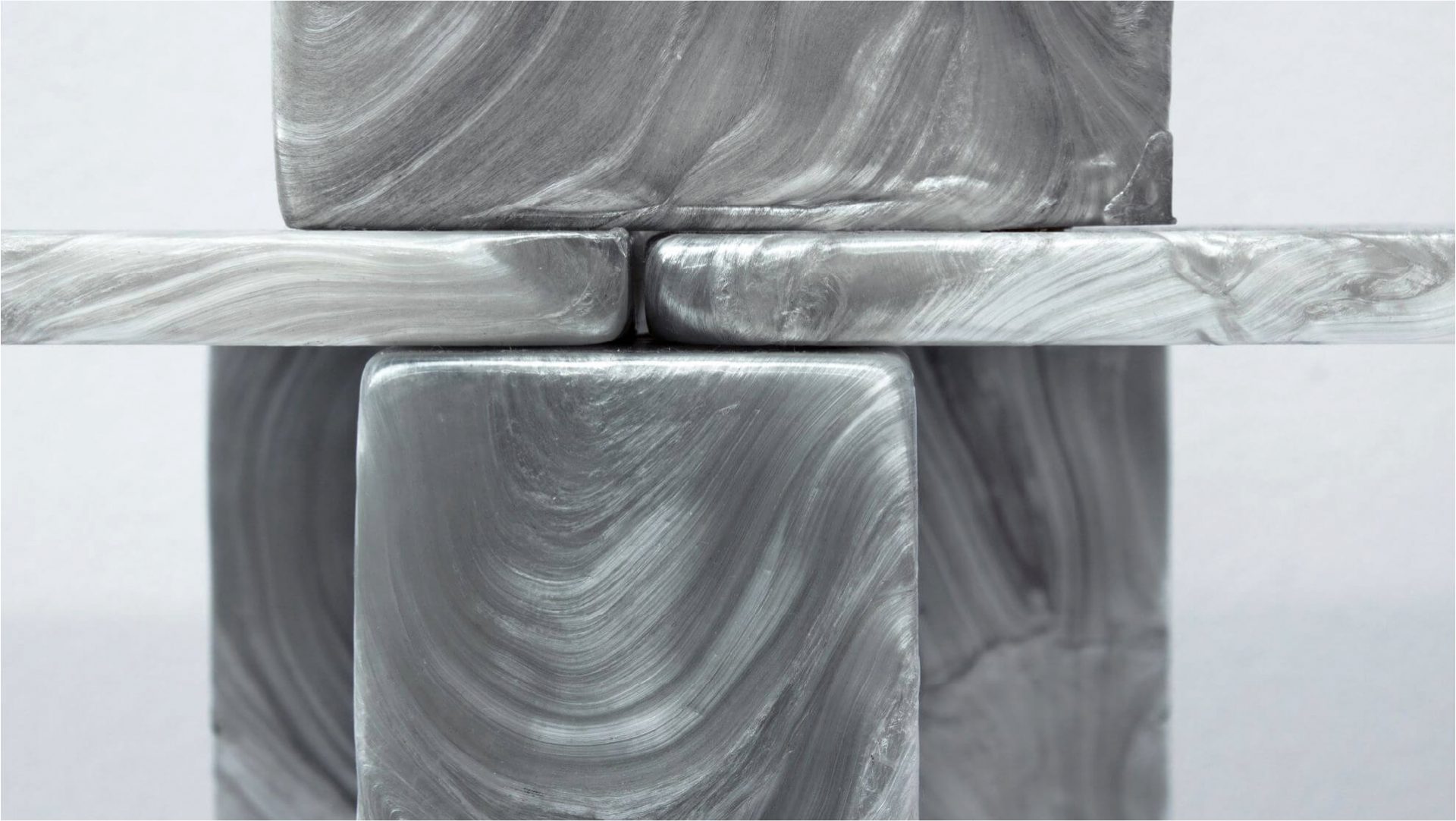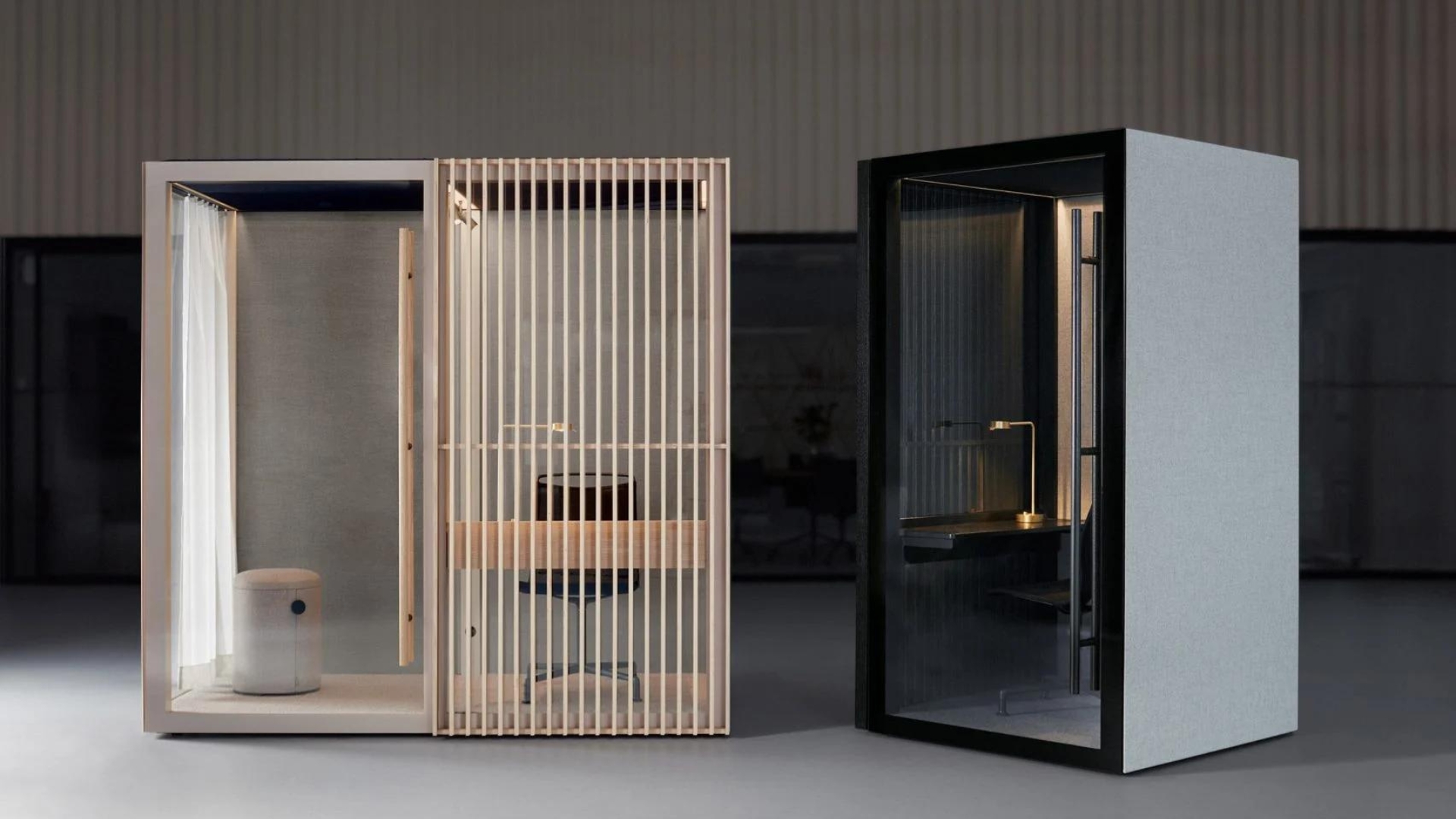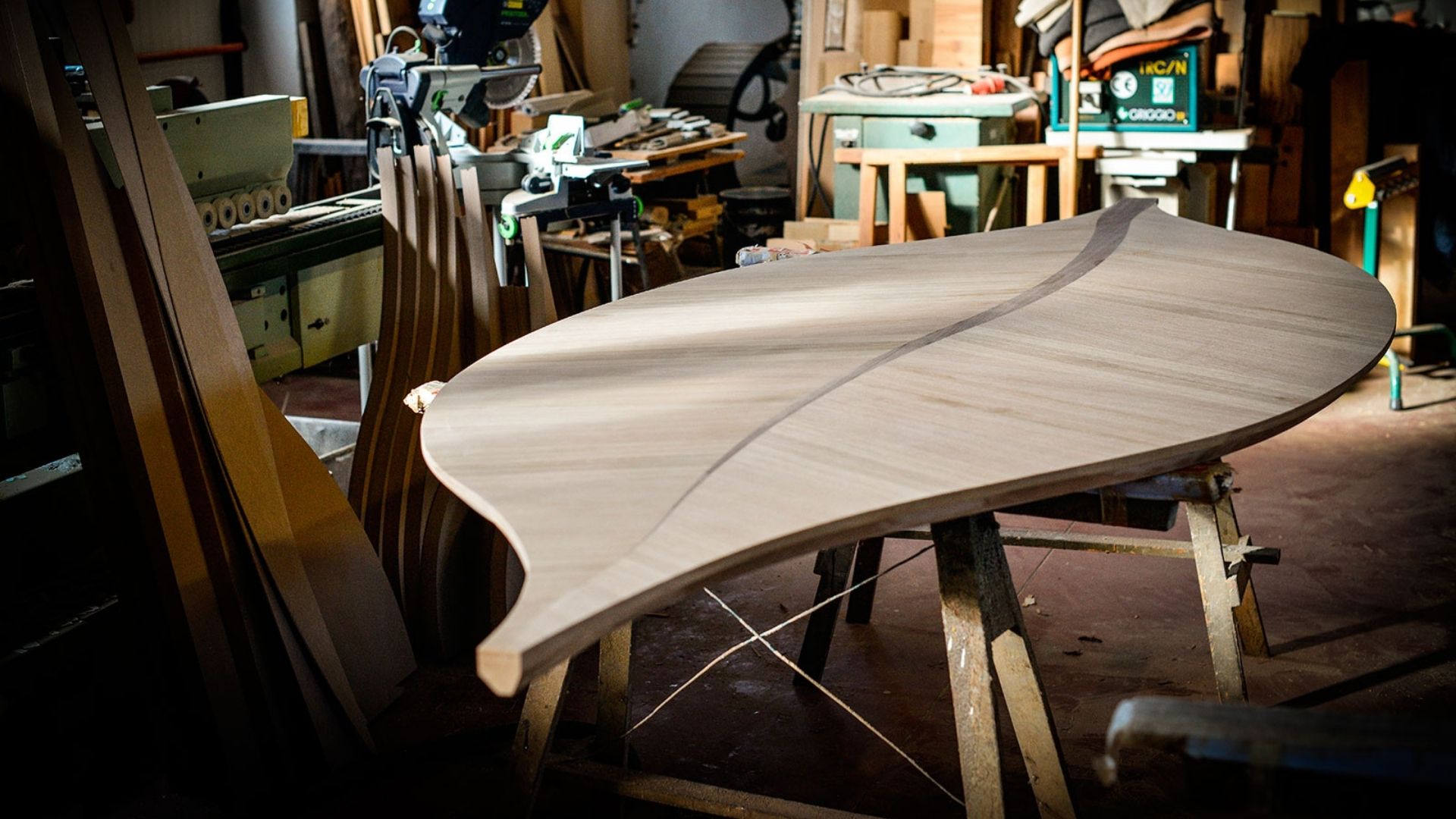Tension is the only force keeping together this sculptural furniture
Paul Coenen uses the flexibility of sheet metal to form rigid structures in his ‘Tension’ series.
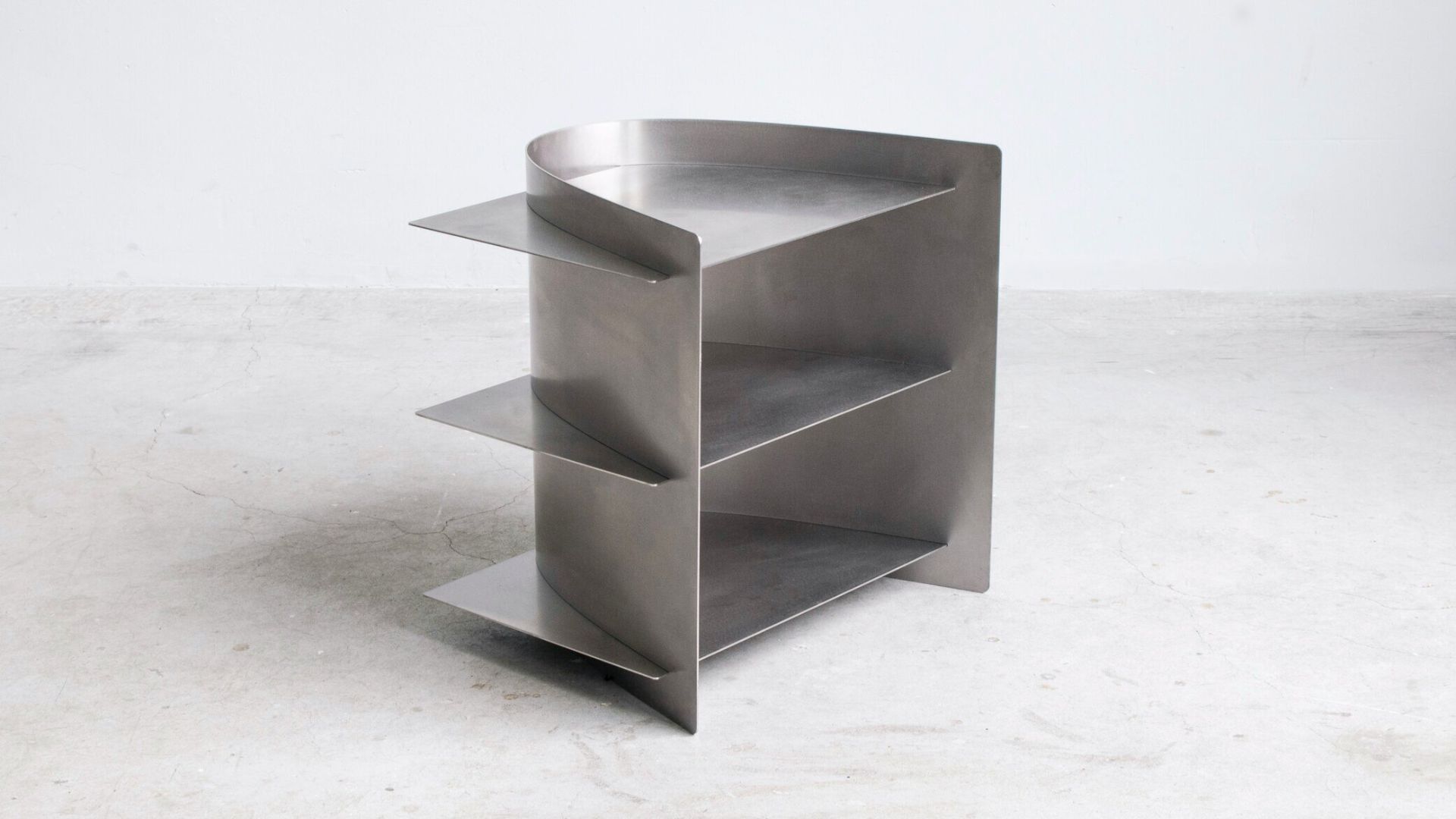
When piecing together sheets of stainless steel Netherlands-based designer Paul Coenen doesn’t use screws, glue or any other fasteners. He doesn’t weld the pieces together either. Instead, he uses the tension created by the material to form shelves, bowls and other decorative objects that are structurally sound.
To create each piece, Coenen cuts through curved pieces of stainless steel using rigid sheets that intersect to keep the structure of his designs. Doubling as shelves, the tension of these rigid elements generate the tension needed to lock the curved piece into shape.
Gallery
Open full width
Open full width
“The Tension side table evolved from my research into the material properties of sheet metal,” Coenen explains. “Sheet metal is often folded to rule out its flexible properties and to create stiffness in the material [but] this flexibility can be used to our advantage.”
“By combining this feature together with high precision manufacturing, a form language evolves: the flexibility of metal is used to lock pieces together due to the sheet’s force of bending back to its original shape.”

Coenen first unveiled this technique as part of his graduate project ‘Borders of Assembly’ at the Design Academy Eindhoven in 2019. He presented a steel furniture collection inspired by the flexibility of sheet metal and the standard sizes used in the manufacturing industry. Every piece of furniture was made out of a standard size sheet of 1000 by 2000 millimetres.

“I looked at the sheet of steel, which the industry still uses the same way, by bending it, and I thought to myself that I wanted to highlight its flexibility,” he explains.“I developed this tension system with laser-cut parts, which fit together very simply – moreover all my work has consisted in this extreme simplification in order to achieve the most sculptural result possible.”
“The most challenging step in the process is finding the right proportions, not only aesthetically, but technically too,” Coenen explains. “If I use too thin sheet metal, the pieces are easy to shape, but can be too wobbly. If the sheet metal is too thick, it is possible to create larger pieces but shaping it becomes difficult.”

“If the shelves are too far apart, the piece starts to deform. They are basically designed around what is possible within this technique. I just follow and explore the possibilities. By now, I understand how far the limits are within this technique, so most new pieces succeed the first time around.”
Since then, the series has developed to include shelving units and side tables available in other types of steel including powder coated and zinc-plated. The same material palette can be applied to Coenen’s collection of ‘Tension Bowls’, which employ the same technique. They are additionally available in brass.

Generally focusing on one material, Paul Coenen’s pieces highlight its inherent nature whilst drawing inspiration from the manufacturing process. We stumbled upon Coenen’s steel furniture at Dutch Design Week in Eindhoven, where Dutch designer Tim Teven’s ‘Pressure’ vases were also on display.
Both projects challenge the rigidity of this industrial material whilst highlighting its iridescent potential adding to a collection of projects we’ve seen recently. In September, we put together a collection of Belgium designers combining steel with sustainable techniques at Milan Design Week.

“The tension series will keep on growing,” says Coenen. “In the coming years, I want to further develop and fine-tune this technique and explore the different scales of the tension collection. I’m aiming to push this technique to bigger projects, as in retail and architecture.”

